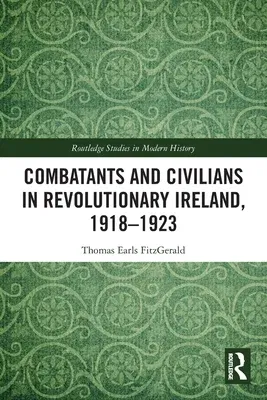Thomas Earls Fitzgerald
(Author)Combatants and Civilians in Revolutionary Ireland, 1918-1923Paperback, 26 September 2022

Qty
1
Turbo
Ships in 2 - 3 days
Only 2 left
Free Delivery
Cash on Delivery
15 Days
Free Returns
Secure Checkout

Part of Series
Routledge Studies in Modern History
Print Length
256 pages
Language
English
Publisher
Routledge
Date Published
26 Sep 2022
ISBN-10
0367753200
ISBN-13
9780367753207
Description
Product Details
Author:
Book Format:
Paperback
Country of Origin:
US
Date Published:
26 September 2022
Dimensions:
23.39 x
15.6 x
1.47 cm
ISBN-10:
0367753200
ISBN-13:
9780367753207
Language:
English
Location:
Oxford
Pages:
256
Publisher:
Weight:
390.09 gm